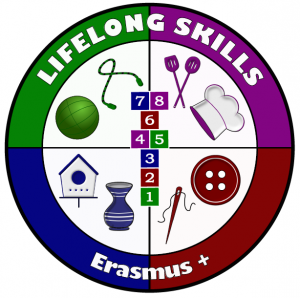According to some studies in some European countries, as many as 50 percent of children aged six years are below average in developing fine motor skills. This is a cause of concern, since fingers are directly involved in the formation of the cerebral cortex and indirectly (through associative areas) they are involved in the formation of cortex in some brain lobes. The problem of fine motor skills also occurs in elementary school, because children do not climb, paint, cook and knead at home, all of which are skills that are vital and at the same time affect the development of the brain. All partner schools are experiencing problems in this field (not just us, most European schools), therefore we would like to take a step forward with this project. The project focuses on dealing with our current weaknesses. Children are not skillful, they are clumsy and have great problems with fine motor skills because they are not involved in many activities at home. The development of fine motoric skills is therefore undoubtedly of the utmost importance. Even the opinions of some world experts confirm that the development of fine motor skills also affects the development of speech and physical or physical abilities. Lifelong skills influence the development of fine motor skills and can be performed on different occasions and locations. The main objective of our project – Lifelong skills – is to develop and train lifelong skills that will improve children’s fine motor skills, which will come in useful in their future. We urge training of educational social games and skills for teachers, who will use these skills in working with pupils. All schools are from disadvantaged rural environments and pupils would thus be given the opportunity for better social inclusion, which is our horizontal priority. Teachers will independently prepare activities with different skills, which will have a positive impact on students, which will learn about these skills. Students will also develop their creativity through research methods, they will become creators of works of art (art colony), and teachers will only be in the role of a mentor. This would also strengthen the professional role of teachers and thus relate to our second horizontal priority – support for educational staff. In this project, through experiential learning, children would be empowered to be more active at home and develop their fine motoric and lifelong skills also during their free time.
The project aims
(Visited 58 times, 1 visits today)
